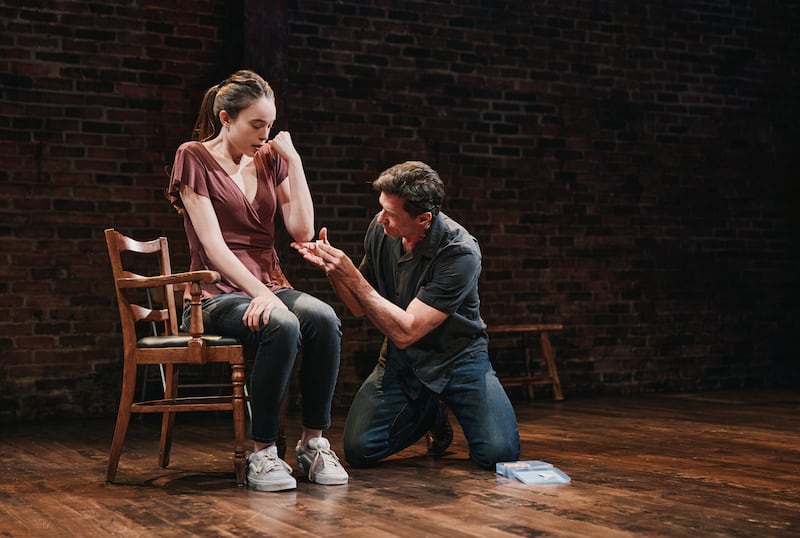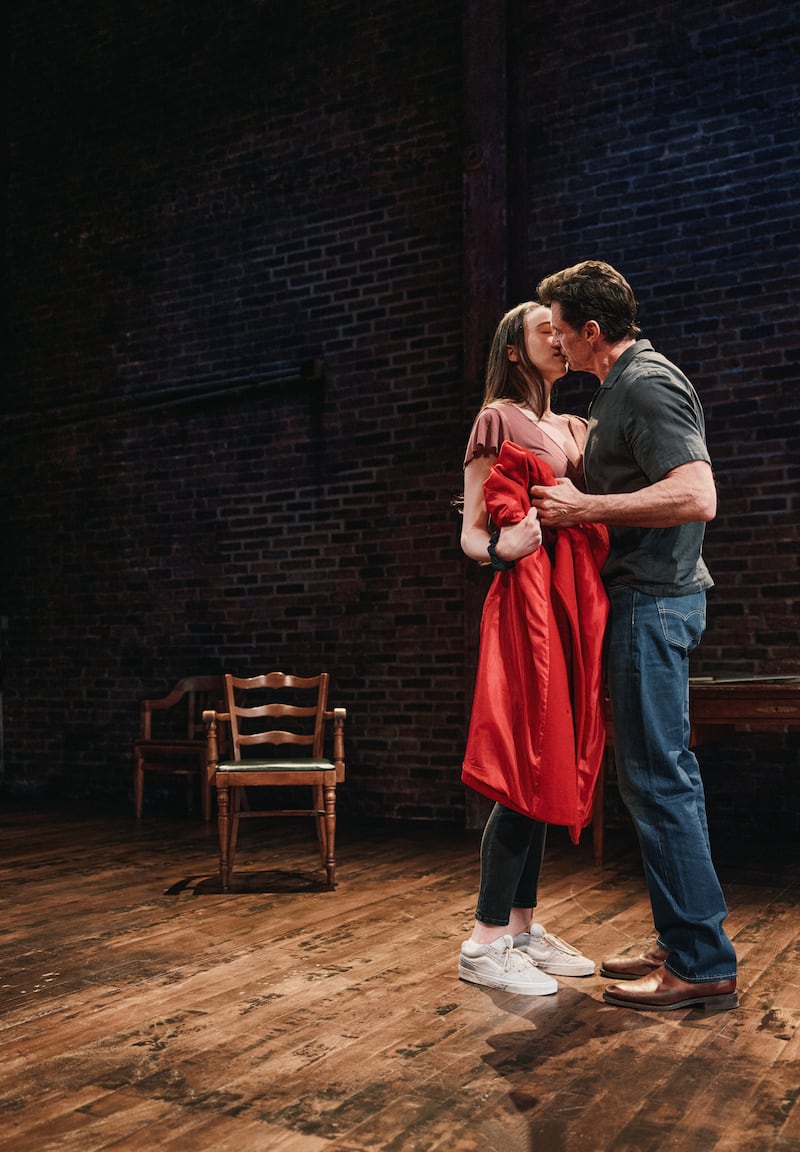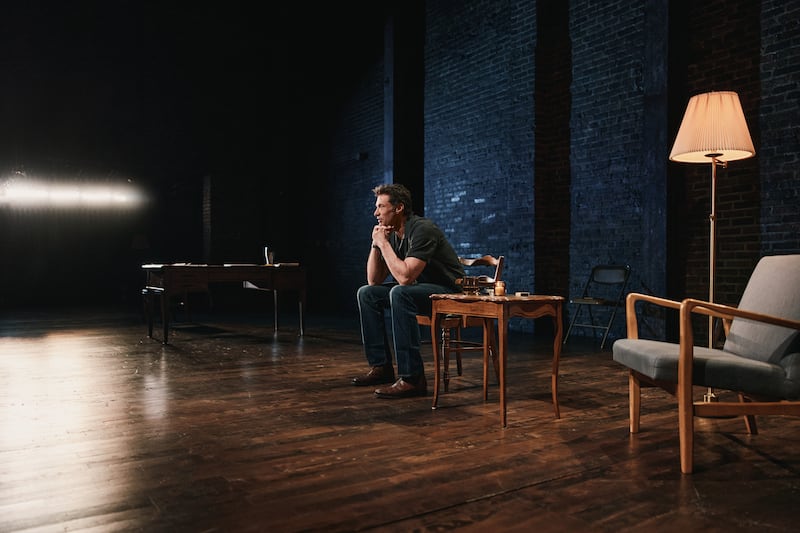What it is to have a voice, and what it is to be voiceless: That is the knot at the center of the oddly titled yet compelling and cracklingly well-acted Sexual Misconduct of the Middle Classes (Audible’s Minetta Lane Theatre, to June 18). Here, Hugh Jackman plays Jon Macklem, a famous author and teacher, and Ella Beatty one of his students, Annie, in a taut, 80-minute tale of an affair and its aftermath where not all is as it seems.
On an almost bare stage, with a few scattered objects employed as props for particular scenes and settings, the story of Jon and Annie unfolds—and this review will not spoil the final, clever twist at the heart of Hannah Moscovitch’s excellent play, which explains and complicates so much about what we have watched.
The presence of Jackman means this is one those off-Broadway productions, by Audible and Together, attracting uncommon crowds and lots of buzz because of a star name, and the show is playing in repertory alongside a production of August Strindberg’s Creditors, starring Liev Schreiber and Maggie Siff, which opens a few days hence.
Far from the Broadway big-star production territory of thousand-dollar tickets, a quarter of all tickets for these shows can be purchased on the day of every performance for $35 in two ways—via digital lottery on the TodayTix app, and in person at the Minetta Lane Theatre box office, which opens at 12 p.m. on the day of the show. Both shows will also be recorded and released on Audible at a later date.

Sexual Misconduct opens with Beatty arranging some of the objects on the stage—but not, you notice and puzzle over, Jackman. Is it just because he’s the bigger star—surely not? This goes on for some minutes, as the audience continues speaking and the show doesn’t start…until it suddenly does with both actors on stage. Director Ian Rickson conjures the pair in a series of dual and solo ballets of drama and flirtation as their relationship flares and fizzles.
At first, we are struck by how little Annie speaks. She sits at the side of the stage listening, as Jon relates the story of the affair direct to the audience, putting himself into the third person with Annie occasionally taking part in the re-enactment of certain moments. The passing of time, and what we are told and not told, are given additional emphasis by the play’s third, silent star: Isabella Byrd’s slyly significant lighting.
The play’s setting of 2014 means that it is set a few years before the main gusts of #MeToo blew through the culture, yet the eyes of 2025 mean we filter what we are watching through that lens.
Jon seems charming, rattling personably at us about his latest (third) failing marriage, his apparent inability not to screw around, and his knowledge that what he is doing with Annie is wrong, potentially exploitative, but…he just can’t help himself. Full marks for all concerned for setting one of their fateful meetings up at a moment when Jon is mowing his lawn, Jackman employing an actual lawn mower—a stage first for this author.

The excellent Beatty may be quieter, but even at the play’s earliest moments where she seems almost a silent cypher she gives Annie a steely watchfulness, a control, and agency. This could mean, you think, that she is as much into something with her teacher as he is with her, or that what he is telling us is not exactly true and soon she will tell us why.
The great trick of the play is its light, but meaningful accentuations of story and character, as well as its interrogation of lust, control, and exploitation. As much as Jackman is charming—the handsome actor takes the audience into his confidence, as much as he seduces Annie—we can see he is also not-charming, that whatever is unfolding before us is not right, not loving, and ethically and morally murky.

Jackman seems thrillingly, vividly liberated in the role—the hot good guy so many in the audience may have come to see, is shown as not so good; or good, but also compromised and, when occasion presents itself, sleazy and manipulative.
Alongside him, Beatty more than holds her own even in silence as Jackman plays raconteur and narrator. She reveals to us Annie’s growing questioning of the situation, especially as—in the scheme of the play—11 full years pass, and we witness the evolution and changing life circumstances of Jon and Annie. This span of time opens Annie’s character up most of all. Physically and verbally, Beatty ensures that we see a changed young woman in her future encounters with the man she once lusted after and idolized.
It is in that future that the real story of what we have watched presents itself—and who has said what, who has done what is thrown into climactic, ambiguous question. And then the play’s third star, Byrd’s lighting, provides the final, bravura turn of the key.
The post Hugh Jackman’s Charm Makes Him Perfect Choice for ‘Sexual Misconduct’ appeared first on The Daily Beast.




